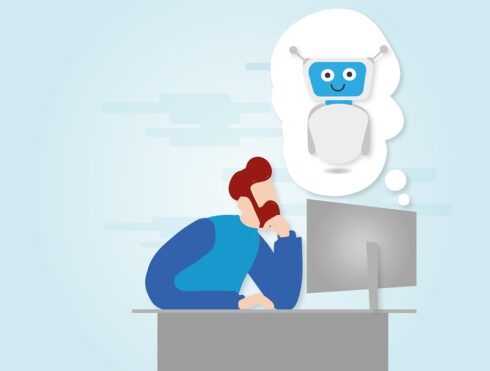
Since our last roundup, lots of new things have been happening around GPT and ChatGPT, and in particular OpenAI, the creator of the technology, has unveiled many new offerings.
Here are some of the highlights surrounding these new AI technologies from the past few weeks.
GPT-4 launches
Perhaps the biggest news was OpenAI unveiling GPT-4, which included significant improvements from GPT-3.5. An example of the improvements is that GPT-4 passes a simulated bar exam with a score that is in the top 10% of those who took the test, while GPT-3.5 was in the bottom 10% of scores when it took the test.
GPT-4 can accept images as well as text as input. An example OpenAI shared is a user giving a photo of a phone with a VGA cable plugged into it instead of a normal charging cable and asking what is funny with the photo.
The response: “A smartphone with a VGA connector (a large, blue, 15-pin connector typically used for computer monitors) plugged into its charging port … The humor in this image comes from the absurdity of plugging a large, outdated VGA connector into a small, modern smartphone charging port.”
Subscribers of ChatGPT Plus can use GPT-4 through chat.openai.com, currently with a usage cap that OpenAI will continue to adjust based on demand. The company says that eventually it will also offer GPT-4 queries to users who don’t have a paid subscription.
Glitch in ChatGPT gives others access to conversation histories; fix applied
This first came to light when a Reddit user posted a screenshot of their ChatGPT window that showed conversations they’d never had.
OpenAI CEO Sam Altman confirmed the issue in a tweet and said it was fixed. “We had a significant issue in ChatGPT due to a bug in an open source library, for which a fix has now been released and we have just finished validating. a small percentage of users were able to see the titles of other users’ conversation history,” Altman said. “We feel awful about this.”
Altman also explained that ChatGPT conversation history was unavailable from 4 AM EST on March 22 to 1 PM that same day as they fixed the issue.
GitHub Copilot X brings Copilot to command line, pull requests, and docs
GitHub Copilot X utilizes the new GPT-4 model and is a major upgrade to the Copilot product, adding new areas where it can be used and introducing chat and voice capabilities.
The new chat capabilities are intended to provide a “ChatGPT-like experience” in the editor. It natively integrates into VS Code and Visual Studio and can recognize code that has been typed and what error messages are shown, enabling it to provide analysis on what the code blocks are intended to do, generate unit tests, and provide bug fixes.
There is also a voice component to this that will enable developers to give prompts by speaking.
Another part of Copilot X is that it will be able to generate descriptions of tags and descriptions for pull requests. The company is also working on a feature where it will warn developers if a pull request doesn’t have sufficient testing and then suggest potential tests.
Copilot is also being integrated into documentation, with a chat interface that will allow developers to ask questions about the languages, frameworks, and technologies that their code is using. It has already created this functionality for React, Azure Docs, and MDN documentation, and plans to also bring this to internal documentation as well.
WolframAlpha adds ChatGPT integration
WolframAlpha is a search engine for computations, and now ChatGPT users will be able to access its functionality through ChatGPT.
The creator Stephen Wolfram first talked about the possibility of connecting the two technologies back in January, and the two companies have been working together since to make it happen.
“Back in January, I made the point that, as an LLM neural net, ChatGPT—for all its remarkable prowess in textually generating material “like” what it’s read from the web, etc.—can’t itself be expected to do actual nontrivial computations, or to systematically produce correct (rather than just “looks roughly right”) data, etc. But when it’s connected to the Wolfram plugin it can do these things,” Wolfram wrote in a blog post.
OpenAI adds other plugins for ChatGPT
The company has started to roll out a small set of plugins to a small set of users as it tests the functionality.
The starting set includes plugins from Expedia, FiscalNote, Instacart, KAYAK, Klarna, Milo, OpenTable, Shopify, Slack, Speak, and Zapier, as well as the Wolfram plugin mentioned above.
OpenAI also created two of its own plugins: a web browser and a code interpreter. The company has also open-sourced code for a retrieval plugin that searches for information within documents, which developers can self-host.





